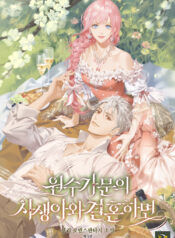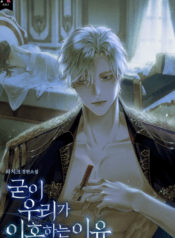Chapter 32
Pinocchio is a work that I staged as naturally as eating a meal every time I went out to volunteer for children’s theater during my previous life when I majored in acting.
As a result, I remember the entire plot, as well as the details of important scenes and lines.
Pinocchio was created by Carlo Collodi in the late 19th century.
Adults who encountered Pinocchio in their dim childhood may only remember that “if you lie, your nose grows longer.”
But that’s not the whole story.
Pinocchio is a fascinating story in more ways than you might think.
If you read the original work from beginning to end, you’ll find yourself wondering, “Did Pinocchio really act like this?” as you scratch your head.
It’s a story of deviation, regret, and repeating the same mistakes over and over again.
They skip school to go sell books and get in trouble, or they make bad decisions in the heat of the moment.
To adults, Pinocchio might seem annoying enough to want to pinch his nose, but children see it differently.
They wish they could avoid going to school and have their pocket money magically increase without effort. While pledging to be good children, deep down, they just want to play.
Pinocchio fulfills these children’s desires vicariously.
Yet, at the same time, it delivers a firm and clear moral message and ends with a heartwarming ending amidst a family atmosphere. So, by the end of the story, even adults can breathe a sigh of relief.
Kids will be entertained by the fun and wild adventure, and adults will appreciate the moral.
It’s truly a story suitable for all ages to enjoy together.
The reason I chose Pinocchio as the first work of the Balthus Theater is simple.
I wanted to do something they don’t do at the Crestwell Grand Theater.
* * *
In a way, the Crestwell Grand Theater is my competition.
If I wanted to survive, I needed to learn all their strengths and weaknesses.
“Hmm?”
As I was doing my market research, something caught my eye.
I wouldn’t say I “discovered” it, but more like I was reminded of something I already knew.
“The Crestwell Grand Theater isn’t open to anyone under 14, right?
That’s right.
The theater had been banning children since Oscar took over, in the name of preserving the “class” and “elegance” of the theater.
Because it was the best in the business, other smaller theaters that were barely hanging on by a thread followed suit.
They thought it would give them a competitive edge.
Of course, instead of gaining competitiveness, they all went bankrupt under Crestwell Grand Theater’s capital offensive.
Kieran, the previous Duke of Crestwell, was not so different in his exclusion of children.
While he didn’t ban children as drastically as Oscar, there was no space for them inside the theater.
Children played in a playroom set aside in the theater while the adults watched the play.
Later, Oscar got rid of the playroom and built an extra tube for the play to go up in.
In other words, the world of theater for children was as unexplored as the first snowfall.
Neither Oscar nor Kieran, who was quite fond of the theater world, seemed to have imagined that there could be a stage for children.
Maybe he didn’t think it was marketable.
But me?
“I’ll be different.”
I already knew how much potential children’s theater could have.
I’m coming from a world where there are dozens and dozens of examples of content for kids that is successful and captivating to adults!
Plus, I knew Oscar wouldn’t expect me to target kids, so I figured it would be a nice little poke in the eye.
But that’s not all.
As mentioned before, I had participated in children’s theater several times before.
This meant that I already had some knowledge of what makes young children tick.
Something Oscar doesn’t have, and something I know how to do.
‘If that’s the case…’
I have a real competitive edge.
I didn’t even have to think about it.
I had completely grasped the thread of children’s theater.
But I didn’t have Pinocchio in mind from the beginning.
At first, I stayed up all night thinking about the kind of heroine who would be perfect for our theater’s signature actor, Katarina.
Long, luscious black hair, sassy and sultry.
But…….
“Oh, no!”
There wasn’t a story in my mental database that matched Katrina’s image perfectly.
There were some, but not suitable for a children’s audience.
After a long moment of racking my brain, I relented.
“Right. Katrina is good at acting, so it doesn’t have to be a perfect fit.”
I jotted down a couple of alternatives, but for some reason…… something clicked.
I wrote down a bunch of candidates, but something about them made me nervous.
“This is similar to this; didn’t Oscar already do this? …… He also did this.”
Since I’m just getting started and my capital, facilities, and reputation don’t yet match those of the Crestwell Grand Theater, my best weapon is differentiation.
If I try to replicate what the Crestwell Grand Theater is used to showing…….
I could only reach a lower level.
That’s why I wanted to do something Oscar hadn’t done.
‘Of course, kids haven’t seen Katarina’s play, so I don’t know if it’s the same or different than it was before…….’
A theater for children doesn’t mean only children come to see it.
Guardians also enter the theater with them.
And those guardians would surely know.
I felt like I was stuck in a rut.
“Should I compromise and be satisfied?”
I knew I shouldn’t have gotten full on the first drink.
But for some reason, I couldn’t let go.
I knew better than anyone that it’s difficult to survive in the entertainment industry dominated by Oscar if you act complacently.
Biting my lip, I tore up the paper with the list of candidate stories.
Let’s start over.
I took a deep breath and looked down at my new, blank sheet of paper.
As I stared down at the blank page, a sudden realization dawned on me.
Wait.
Wouldn’t it be better to go for something radical rather than something mediocre?
Something Katarina hasn’t done.
Something Oscar had never done with Katarina.
Something he’s never even thought to draw.
“Yeah…….”
I mumbled in a daze.
“Yeah, Katarina’s good at acting.”
Maybe she could pull off playing a wooden boy puppet?
* * *
After this realization, I couldn’t sleep.
I stayed up all night writing a new synopsis of Pinocchio.
I made two copies, one for myself and one for Katarina and Becky.
A lump formed in my throat as I asked Dylan to copy and mail it.
Katarina would surely object.
In my world, it was not uncommon for a good-looking actor to wear comical makeup to make an audience laugh.
But not in this world.
On stage, characters who evoke laughter had to be pretty and beautiful.
The only people who wore so-called “ruined” makeup were clowns who didn’t belong to a theater company and were just making a living from day to day.
A few hours later, as I predicted, Katarina showed up.
She looked contemplative.
Her hands were shaking as she clutched the wad of paper.
“You’re kidding, right?”
Her voice was shaky, as was her grip.
I just stared at her calmly.
Katarina looked confused. Her mind seemed to be white.
And for good reason.
With her luscious curly hair, beautiful eyes, and even more beautiful body, she was always the center of attention on stage, with a voice that was a treasure.
Onstage, dressed in her most glamorous attire, she laughed, howled, and flirted her way into the hearts of men.
As the embodiment of such beauty, she must have been very confident in her role.
But to play a mischievous wooden puppet?
It must have been a role beyond her wildest dreams.
Katarina shook her head as she backed away, knowing from my reaction that I was serious.
It was the first sign of weakness in her fierce personality.
“I’m not confident, I can’t do this.”
I didn’t rush to say anything, just stared at her, taking my time.
Dylan quickly brought us cold tea.
Katarina took the mug, but instead of drinking it, she just held it.
As she watched me nervously, I calmly asked
“Why can’t you do it?”
It was a question that both Katarina and I already knew the answer to.
The answer came immediately, out of nowhere.
“I’ve never done anything like this before. I’ve never thought about it!”
Katarina’s shock was not unreasonable.
Maybe she felt like she was falling.
When I remained silent, Katrina squeezed her eyes shut and added.
“They don’t do this at Crestwell Grand Theater!”
I knew she was going to say it.
So I waited for that exact line.
“Exactly!”
I snapped my fingers.
Katarina’s shoulders jerked as my fingertips made a loud noise.
I drew my breath up from my stomach. I knew how to speak clearly and menacingly without raising my voice.
“Say it again what you said a moment ago, Miss Blanchette.”
Katarina bit her lip and rambled on.
“At the Crestwell Grand Theater, we don’t……. We don’t do this.”
There was silence after that.
Katarina was smart enough to realize that.
The fact that to survive, we have to do what Crestwell Grand Theater doesn’t do.






